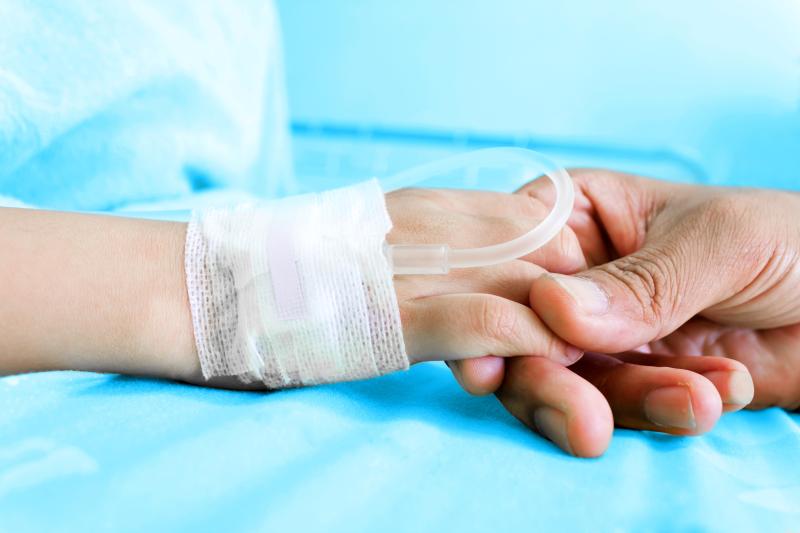
The coronavirus disease 2019 (COVID-19) appears to be more dangerous among cancer patients, who tend suffer more severe complications and faster disease progression, according to a new study.
“In the COVID-19 crisis, cancer patients are regarded as a highly vulnerable group,” said researchers, noting that several questions about disease course, outcomes and treatment remain unanswered. “Therefore, we aimed to explore these issues by conducting an urgent retrospective case study on critical COVID-19-infected cancer patients.”
Of the 28 enrolled cancer patients (median age, 65.0 years; 60.7 percent male), a quarter had lung cancer. Other common malignancies included oesophageal and breast cancers. Ten patients had stage IV disease, and all had received antitumour intervention. Eleven patients had at least one coexisting chronic condition aside from cancer. [Ann Oncol 2020;doi:10.1016/j.annonc.2020.03.296]
Most patients had been admitted for COVID-19 from the communities; only eight contracted the virus while undergoing antitumour therapies in hospitals. The most common presenting symptom of the infection was fever (82.1 percent), followed by dry cough (81 percent) and fatigue (64.3 percent).
More than half of the participants developed severe clinical events. Upon disaggregation into the individual components, six patients (21.4 percent) needed intensive care, 10 (35.7 percent) developed life-threatening complications and eight (28.6 percent) died.
Outlook was worse for the 10 patients with stage IV cancers, of whom 70 percent had developed severe events, as compared to only 44.4 percent of the other cancer patients.
Notably, of the six cancer patients who had undergone antitumour procedures within 14 days of COVID-19 diagnosis, all but one experienced severe events.
Acute respiratory distress syndrome was the most frequently encountered complication, reported in eight patients (28.6 percent). Septic shock, acute myocardial infarction and suspected pulmonary embolism were also reported.
Multivariate Cox proportional hazards analysis revealed that antitumour treatments within 14 days of testing positive for the virus was a significant risk factor for severe events (hazard ratio, 4.079, 95 percent confidence interval, 1.086–15.322; p=0.037. Having a patchy consolidation on chest computed tomography was also an independent predictor.
Of the surviving patients, 10 remained admitted while the other 10 patients were discharged after a mean hospital stay of 13.5 days.
“Our findings support the vulnerability of cancer patients in current pandemic,” the researchers said, though several shortcomings had to be considered. Among these were the retrospective and nonrandomized design, as well as the small sample size. The failure to include a comparator group also limited the conclusions.
“The comparisons between cancer and noncancer patients with COVID-19 infection could reveal more useful information, as would comparisons of less severe cases not included in our study population,” they said. “Thus, future studies with larger sample sizes and prospective study designs are warranted to further explore the risk factors and severe events in COVID-19-infected cancer patients.”